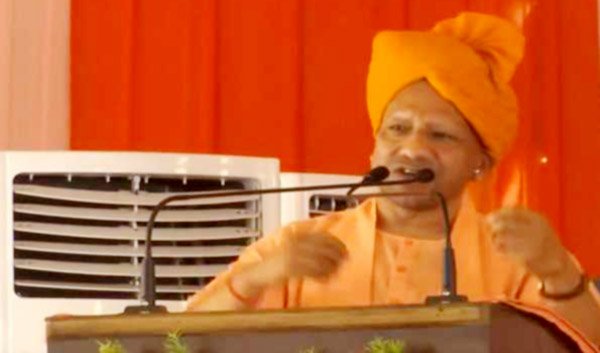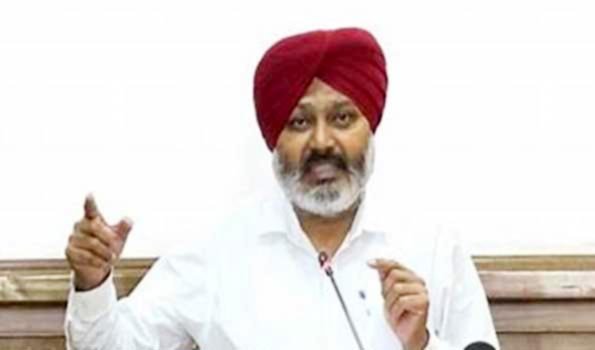Saharanpur (UP), Apr 12 (UNI) Chief Minister Yogi Adityanath on Friday compared the mafia with demon (Raktbeej) and said that they should not be allowed to flourish again in Uttar Pradesh under any circumstances.
Addressing an election rally in Deoband in support of BJP candidate Raghav Lakhan Pal Sharma from Saharanpur Lok Sabha seat, the Chief Minister said, “Congress and SP used to capitulate to them, but today some mafia are behind bars, while others have met their fate. Their influence has completely ended.”
He highlighted the clear division in this election between two opposing ideologies. “On one side are those driven by caste divisions, while on the other are individuals dedicated to nationalism. On one hand, there are those intent on tearing apart the social fabric, while on the other hand, under the leadership of Prime Minister Modi, there are people who believe in upholding India’s dignity,” he said.
Yogi emphasised that the Saharanpur district, nestled in the sacred embrace of Maa Balasundari, Maa Shakambari, and Maa Yamuna, stands as the birthplace of heroes. “Today is the holy birth anniversary of the great Maharana Sanga. On his birth anniversary, we got the opportunity to offer floral tributes to the statue of his grandson Maharana Pratap. Even after centuries, the nation holds Maharana Pratap in high esteem, as his sacrifices were for the nation and faith, not for personal gain. However, the people of Congress, SP, and BSP obstructed the construction of Maharana Pratap’s statue in this region for two decades,” he said.
He remarked on the inability of previous governments, before Prime Minister Modi’s tenure, to facilitate the construction of the Ram temple in Ayodhya. “Congress denied the existence of Ram in the Supreme Court. When Lord Hanuman was fetching the Sanjeevani Booti, Kalnemi was chanting Ram’s name. In this election, individuals like ‘Kalnemi’ will approach you, chanting Ram’s name. However, a true patriot stands by the one who has actualised the construction of the Ram temple. You have witnessed our governance for a decade at the national level and seven years at the state level,” he said.
The Chief Minister said, “We have removed the mics and loudspeakers from which they used to shout and cause disturbances. Our country and our religion are our national pride. If they are secure, so are we,” he said
Advocating for ending casteism, communalism, and regionalism, he called for embracing a broader, inclusive identity. He criticized past governments, including that of Congress, SP, and BSP, for their lack of substantial development in Saharanpur.
Yogi said that the construction of a highway in the region was halted due to corruption. “Still, under the current leadership, progress has been made, with the completion of the highway bringing Delhi within a two-hour reach. Additionally, initiatives are underway to enhance infrastructure, including highways and railway networks, and transform Saharanpur into a smart city,” he said.
He also announced the commencement of sessions at the university named after Maa Shakambhari, with plans for its official inauguration post-elections. He expressed dismay over the transformation of Saharanpur, originally envisioned as the ‘Kashi of the West,’ into a centre of religious fanaticism, particularly in Deoband.
The Chief Minister highlighted instances where ‘fatwas’ were issued on trivial matters, including directives on vaccine administration, fostering an environment conducive to chaos and disorder rather than development. “Despite the region’s rich history of craftsmanship, artisans needed more support and recognition, resulting in missed opportunities for growth,” he said.
He condemned the exploitation of farmers, citing low prices for agricultural produce and the sale of sugar mills to criminal elements at nominal rates. Highlighting recent successes in combating organised crime, he noted that some mafia members are now behind bars while others have met their end.
Yogi outlined decisive actions against the mafia in Prayagraj, highlighting efforts to seize their ill-gotten assets and repurpose the land for social welfare projects. “Reclaimed land has been utilised to construct high-rise housing complexes for underprivileged residents,” he said.











